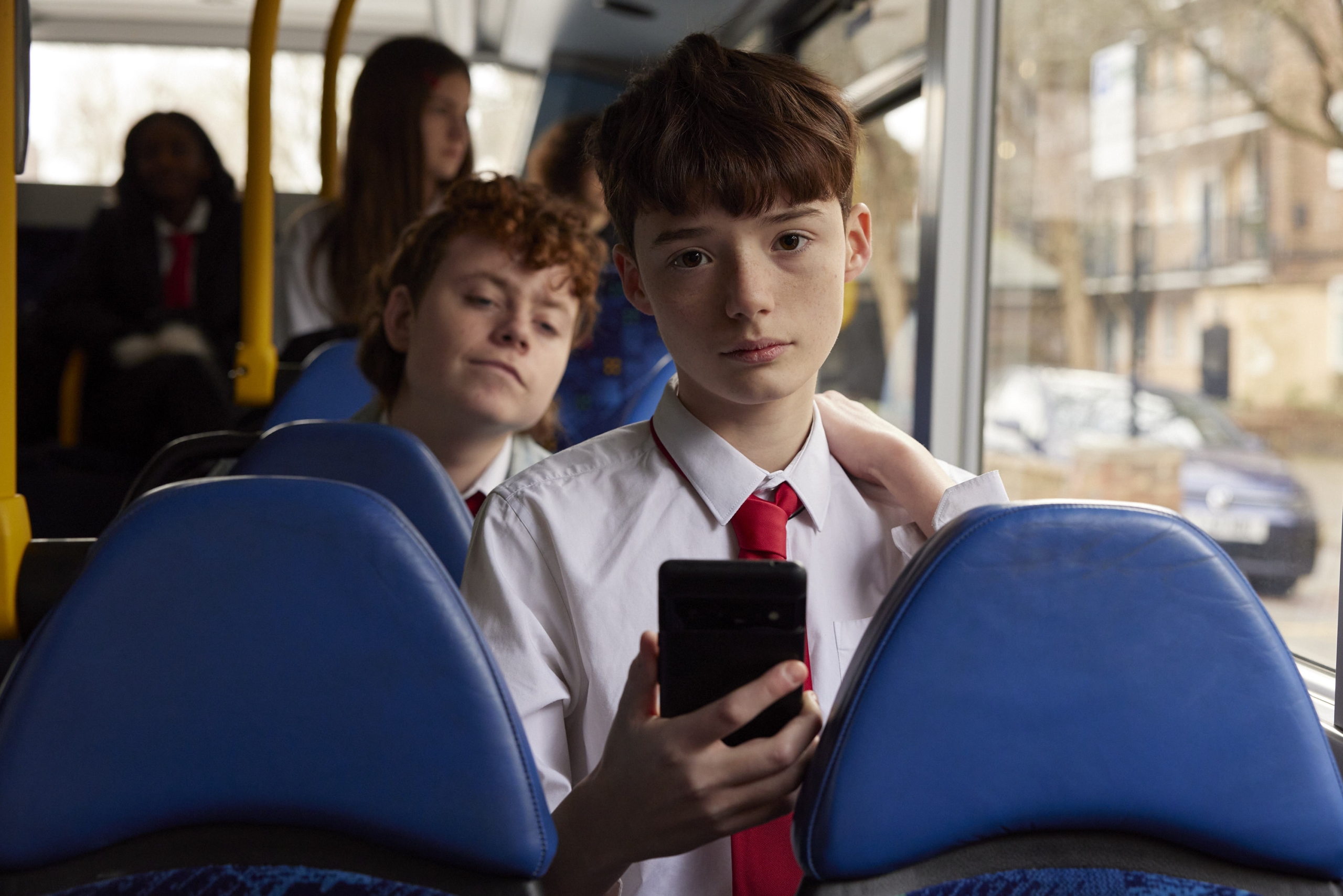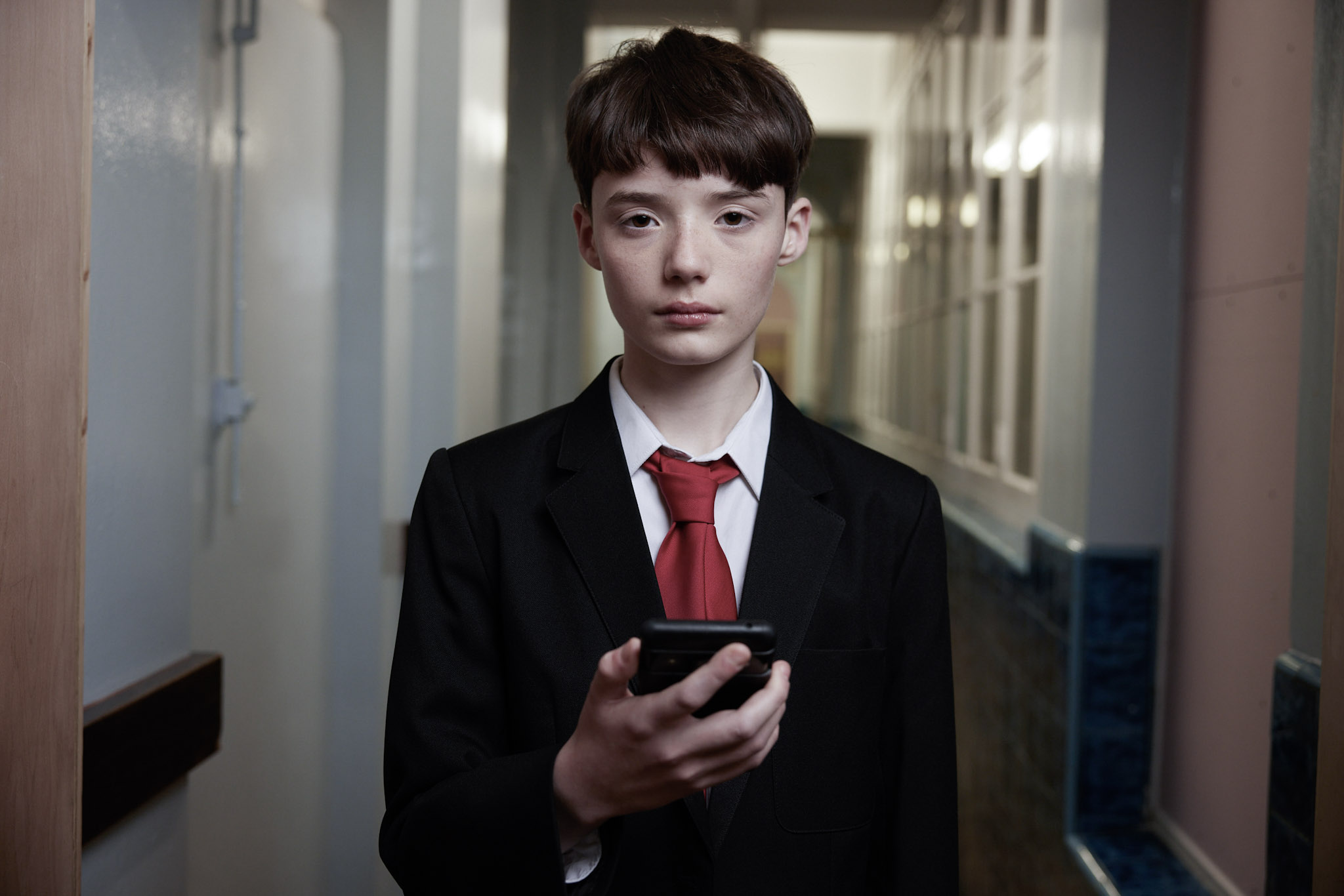Vodafone has been working with the NSPCC since 2023. In that time, the organisations have worked on everything from a phone safety toolkit to a safe gaming festival. We sat down with outgoing CEO, Sir Peter Wanless, to hear why including children’s voices has been so central to all of this.
Despite a job that often requires him to highlight the issues with technology when it comes to keeping children and young people safe, Sir Peter is not one to shy away from its broader benefits.
He was a relatively early adopter of X, then Twitter, having felt his Big Lottery Fund team were doing a lot of good work that was going largely unreported. As a result, he not only shared third sector success stories but “met some really lovely people” in the process.
Today, his feed is largely the preserve of a well-followed iPod playthrough thread (“the only reason I continue on there, if I’m honest”), while LinkedIn is more likely to be the home of his observations on leadership, life and child protection.
In many ways, his own evolving relationship with social media reflects Sir Peter’s views on the wider issue at play. “It’s about getting the balance right,” he says. “There are services and products that greatly enrich life for many of us – the experiences we can have, the friendships we can create, the things we can learn.
“But, at the same time, it’s a ‘Wild West Web’, where anything often goes. For those who want to take advantage of young or vulnerable people, there’s a whole new playground for them to be active within.”
What to do when your child encounters unsuitable content online
Nicola, 37, of Norfolk, describes the moment she found her child had been exposed to more online than she'd bargained for. We ask the experts how parents should respond when this happens.
Working with others
As CEO of the NSPCC for the past 11 years, Sir Peter has worked hard to make the online protection of young people a central tenet for the organisation, having only had one person spending half of their time on the issue when he first took the role.
“Child safety online is now one of our three strategic objectives,” he says. “More importantly, our work is guided by what children and young people are saying and experiencing themselves. And, today, they are telling us that the online world is a vital part of their lives.”
To get this right, the NSPCC has had to purposely walk towards the issues and spaces where children are most at risk. Increasingly, this requires working with those who operate in online spaces, from tech platforms to governments.
“One of the big challenges of this period,” says Sir Peter, “has been to confront government and tech companies with the question of whether another self-regulatory code of good practice is going to achieve what we need. Or, if we should have the fundamentals of child protection underwritten by law, as we do in the offline world.”
"There are still far too many instances of preventable incidents as a result of child protection not being properly designed into online products and services.”
“Over the last ten years, we’ve seen significant progress being made in terms of companies showing greater regard for the child protection implications of the services they are making available. But there are still far too many instances of preventable incidents as a result of child protection not being properly designed into online products and services.”
To help address this, Vodafone partnered with the NSPCC in 2023. Together, the organisations provide guidance to support families when navigating the online world. This includes the co-created TRUST phone safety toolkit, as well as Digital Parenting Pro – one of the UK’s largest parental controls and safety settings resources – which features top tips from the NSPCC.
The partnership also extends to support for the Voice of Online Youth – a group of 14 13-17-year-olds assembled by the NSPCC to help introduce children’s voices and experiences into the online safety discussion.
“Voice of Online Youth has a strategic role within the NSPCC to help ensure children stay safe online,” says Sir Peter. “They advise us, while we can give them a platform to amplify their voices, directly and on behalf of other children and young people. In turn, they can help inform decision makers like Ofcom and the Government.”
National creative writing competition launched to help children turn online safety advice into action
Competition, launched by Vodafone and First News, comes off the back of data showing that while 95% of children feel confident with digital safety knowledge, nearly half (48%) have followers on social media who they don’t know.
A new narrative
More recently, Vodafone launched a creative writing competition with First News, a weekly newspaper aimed at children, inviting those aged 7-15 to create new fables based on building healthy digital habits.
“This is a great competition,” says Sir Peter, “as we know that children and young people enjoy the opportunity to express themselves creatively and play a role in educating others.
“We also know that young people feel online safety education often misses the mark when it comes to engaging and involving them, so giving them a platform to do this themselves should hopefully generate some really diverse and insightful perspectives.”
The competition was launched in response to research that showed, while conversations about online safety begin when children are around 7-8 years old, there is scope to make this advice more memorable. It is also taking place amid the context of the Online Safety Act becoming law in October 2023, and being widely debated ever since.
“Regulation does work. It does shift behaviour. We have already seen significant shifts in industry behaviour off the back of it."
“I’m a huge supporter of the Online Safety Act,” says Sir Peter. “It’s not exactly how I would have written it, and it took too long to come, but it did come through. And it now has the potential to put in place a number of significant red lines, expectations and regulations on companies.”
Though the first draft only met one and a half of the six tests that the NSPCC set out as constituting effective legislation, the final act met five out of six, leaving him more optimistic than he perhaps once was.
“Regulation does work. It does shift behaviour. We have already seen significant shifts in industry behaviour off the back of it, particularly around the Age Appropriate Design Code (Children’s Code).
“People need to see that it is meaningful. I have every confidence that, if this legislation is enforced, it will make a material difference, and children will be significantly safer as a consequence.”
Why Ofcom’s new measures are a step in the right direction for children’s online safety
Nicki Lyons, Vodafone UK’s Chief Corporate Affairs & Sustainability Officer, considers the potential impact of Ofcom’s new code of practices on the online safety of children.
What comes next?
While Vodafone has been helping the NSPCC promote online safety conversations within the industry for the last couple of years, there’s certainly still more to achieve.
“We’ve been talking to one another about what products and services for younger children look like,” Sir Peter says. “One really important conversation is about knowing and understanding what’s real and what’s not online, and how we help families and their children to develop the skills to interpret what they’re seeing.
“So, I think there’s some really interesting educative work which we could be doing together in that space.”
Sir Peter, who is stepping down from the NSPCC at the end of the year, has been slightly more coy on what may come next for himself, however, after more than a decade in his “dream job”. Although, a podcast with Directory of Social Change Chief Executive, Debra Allcock Tyler, is proof that he remains happy to embrace digital media.
“I haven’t asked how many people have listened yet,” he says, “but I did get a message from an old schoolmate of mine, who works at Microsoft in Seattle now, and he said he’d listened to it. So, we’ve got at least one fan.”
For a leader who has made a career out of driving important discussions, perhaps it is not surprising that continuing the conversation is still high on his agenda.
Stay up to date with the latest news from Vodafone by following us on LinkedIn and Twitter/X, as well as signing up for News Centre website notifications.
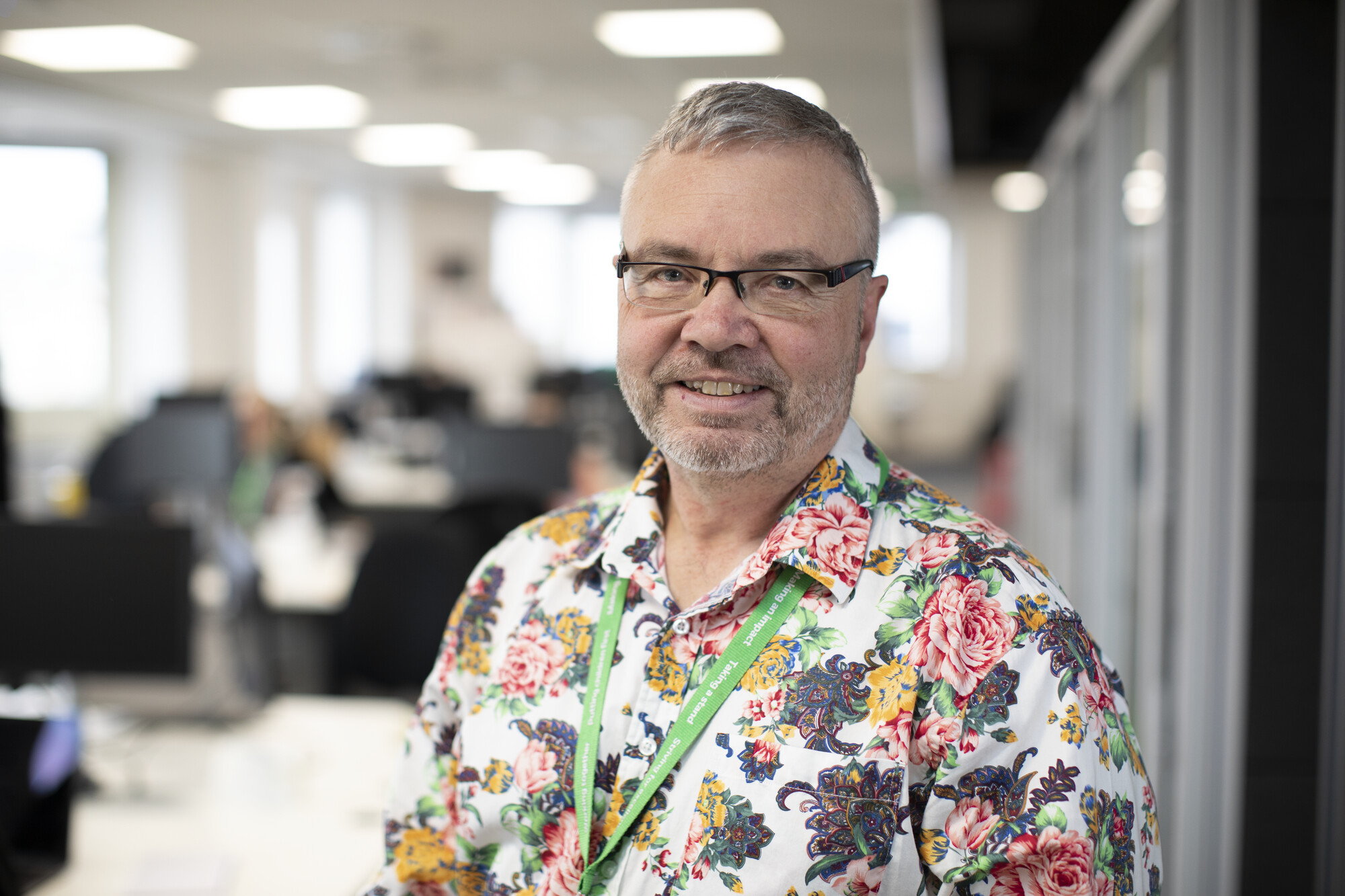



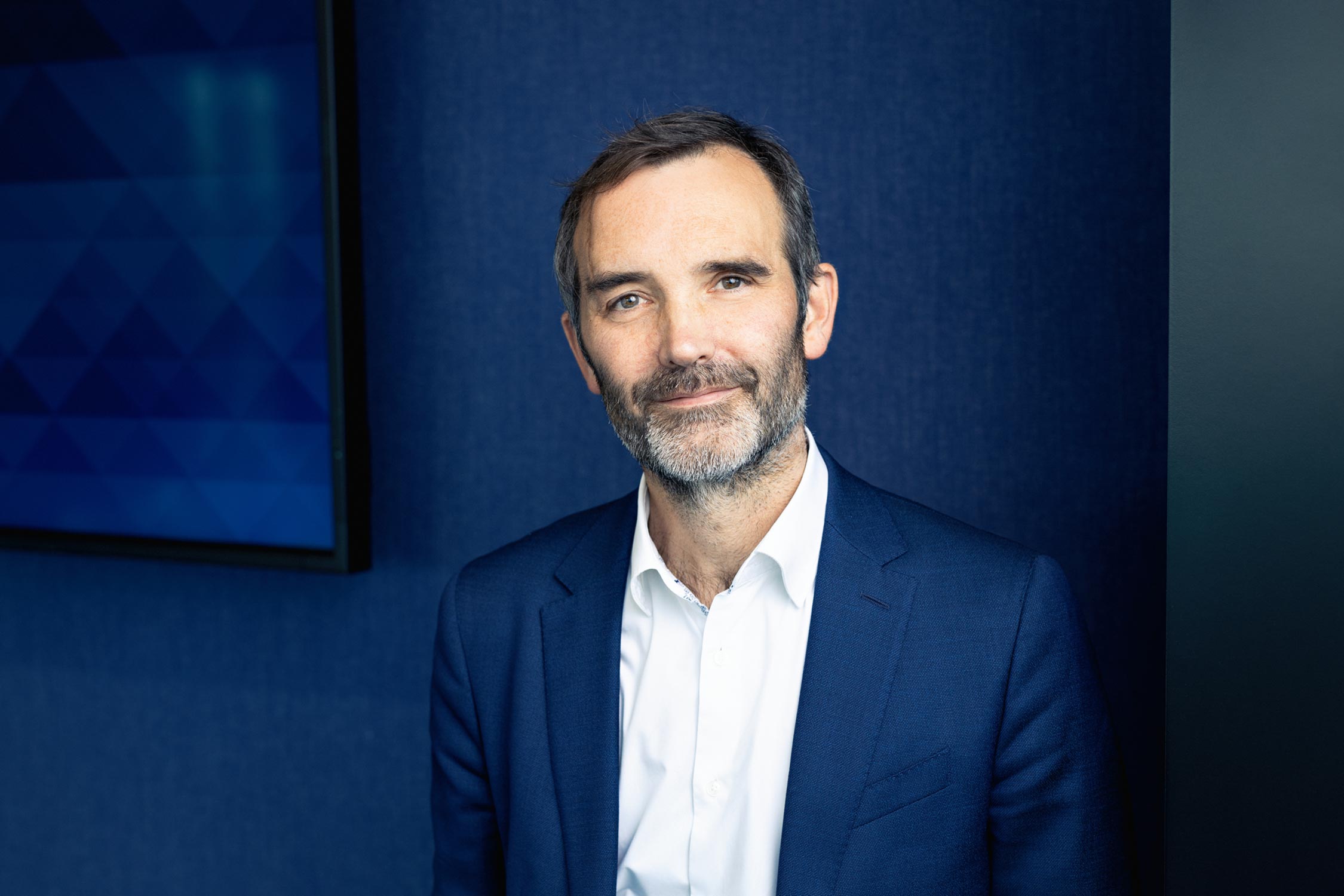
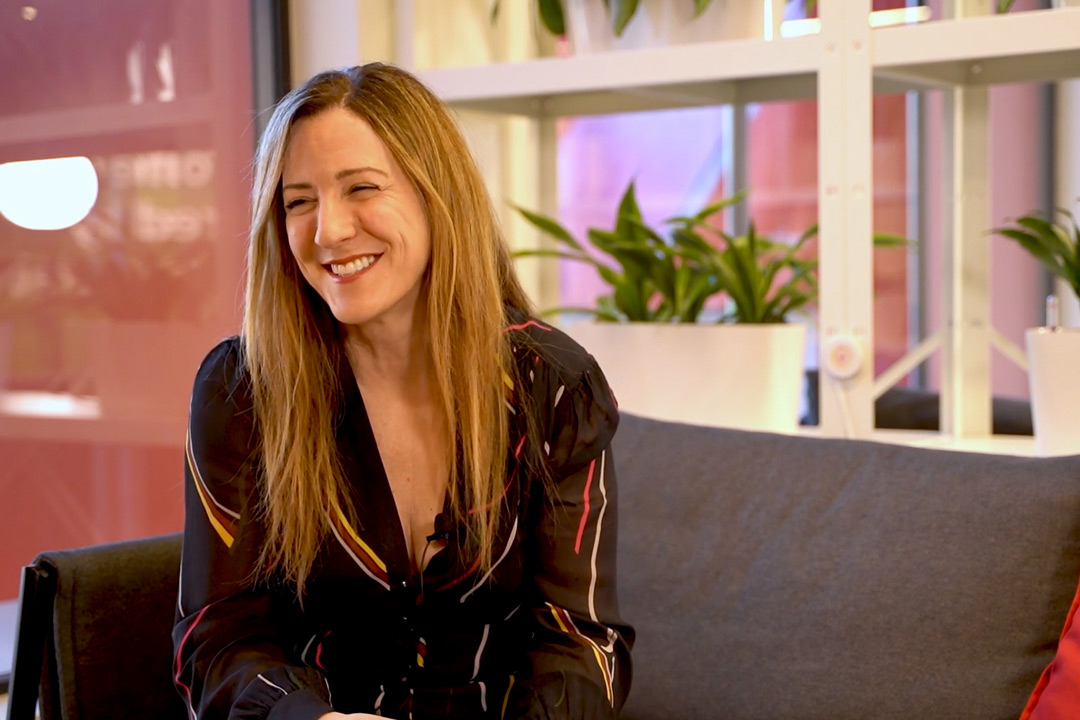
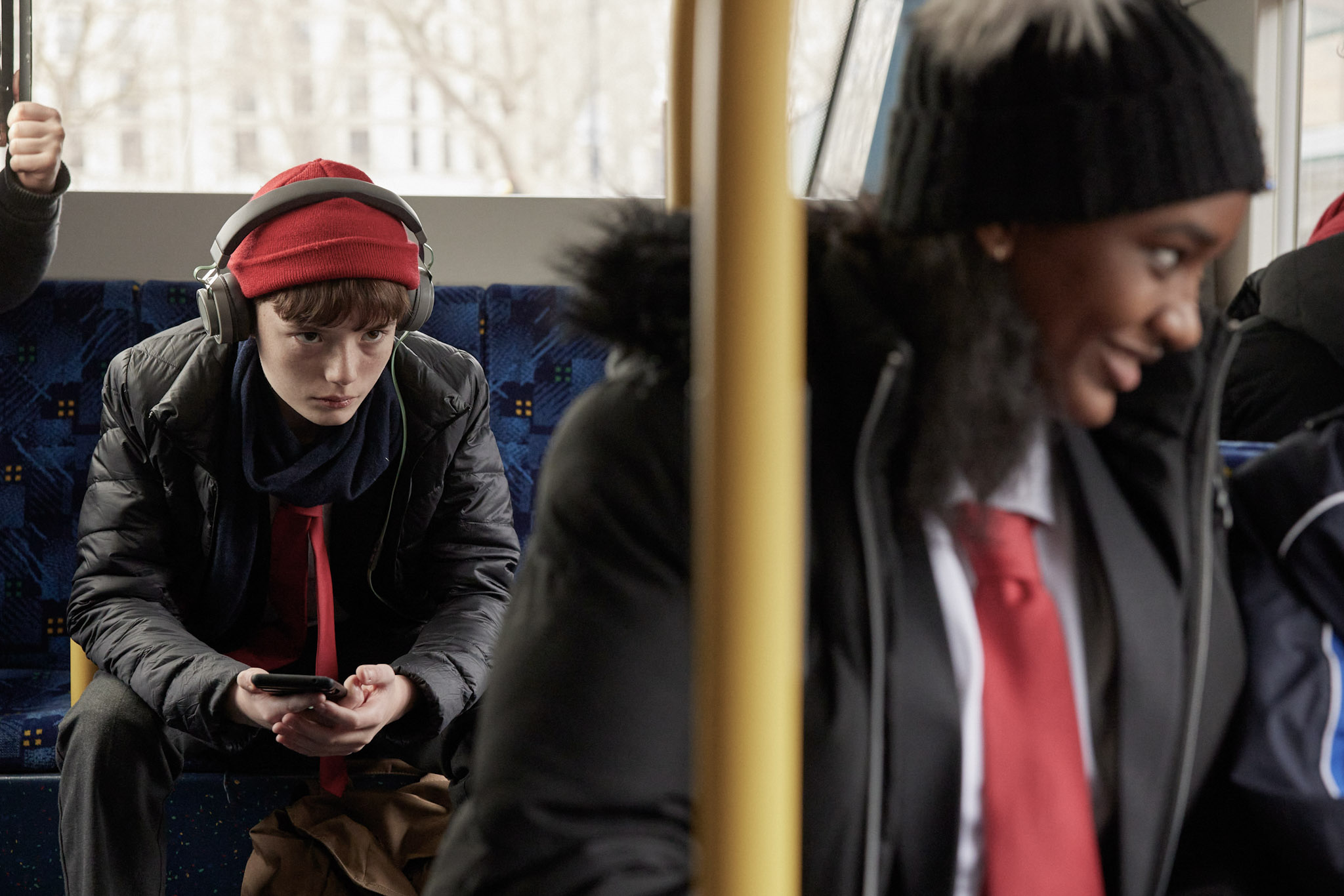

![mother with daughter with smartphone in snowy weather [Adobe Stock] stock photo of a mother outside in snowy weather with her daughter while using a smartphone](https://www.vodafone.co.uk/newscentre/app/uploads/2024/02/mother-with-daughter-with-smartphone-in-snowy-weather-Adobe-Stock.jpg)
